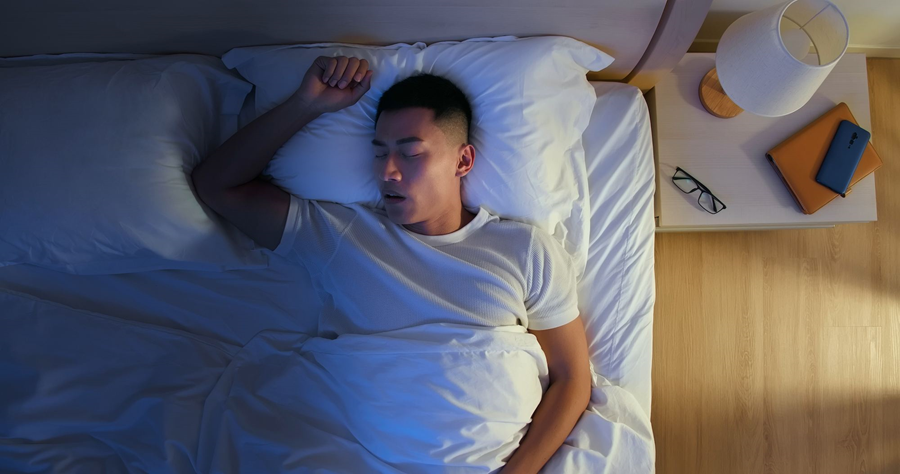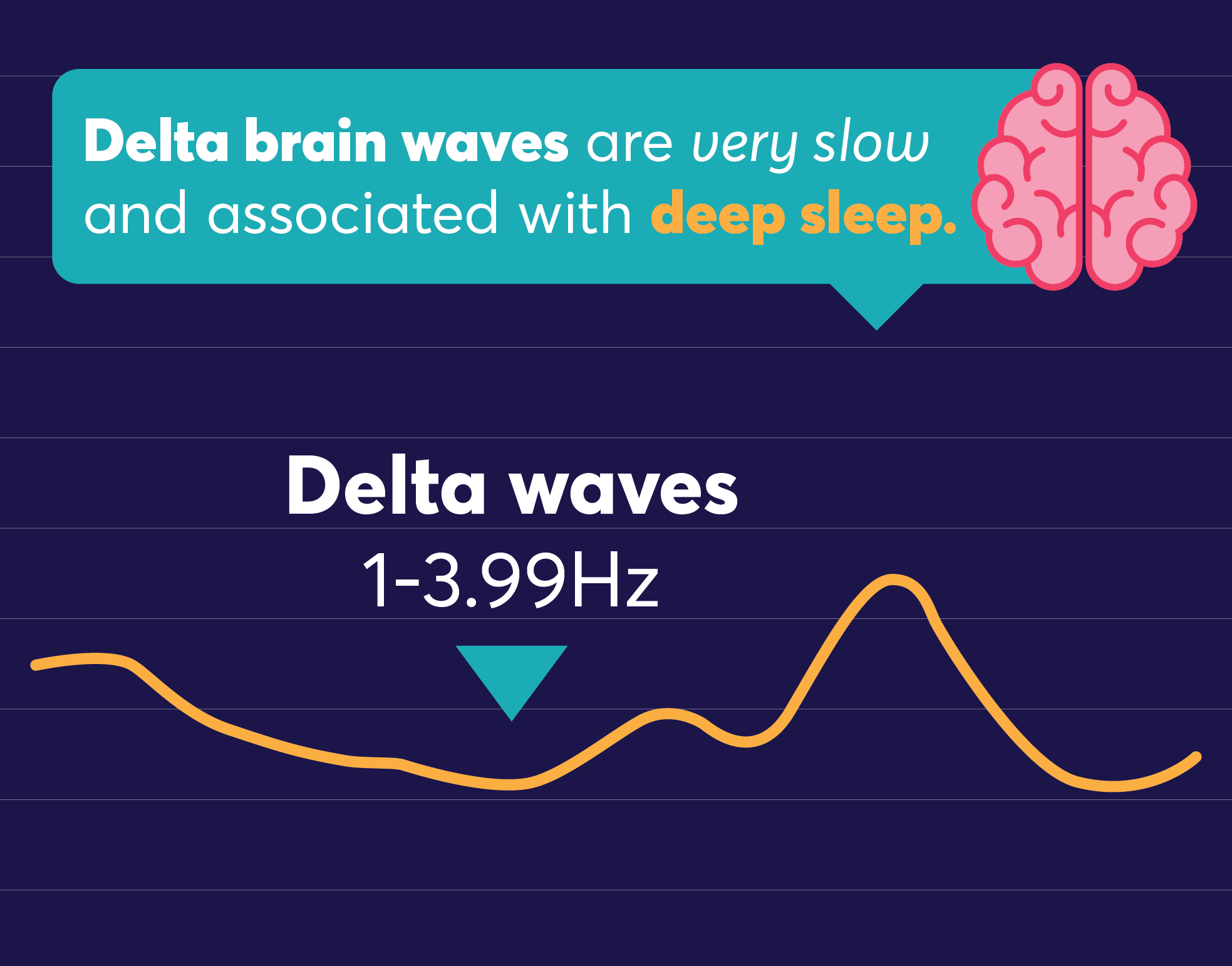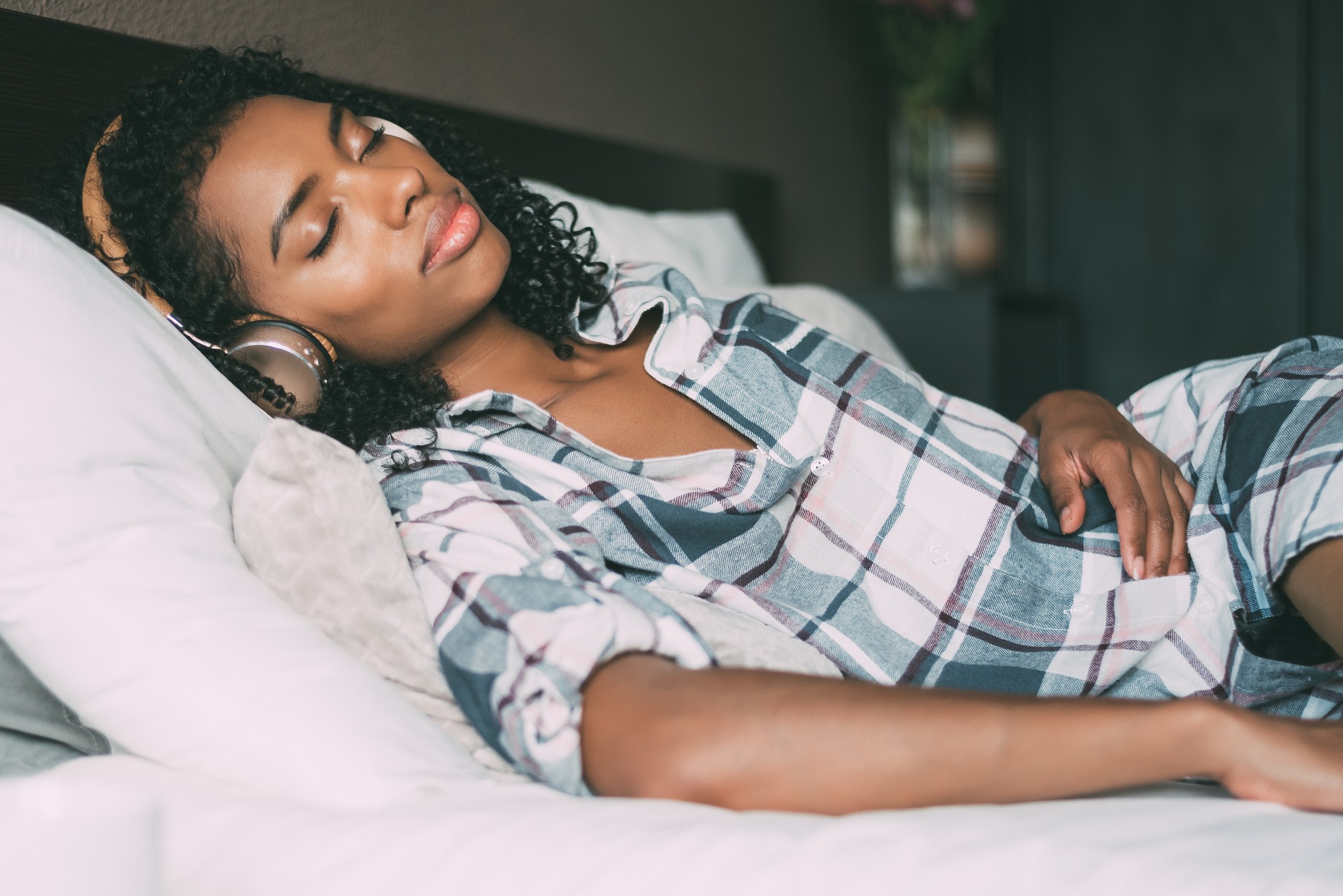- Home
- Mind & body
- Delta binaural beats: listen your way to a better night’s sleep!
At CBHS we help you manage your health challenges. We believe in offering you the services, support and tools you need to live your best life.
Health and Wellness Programs are available to support eligible members towards a healthier lifestyle. Each Health and Wellness Program is subject to its own eligibility criteria.
Contact us for more information and to confirm your eligibility for a program.
Delta binaural beats: listen your way to a better night’s sleep!

What’s your favourite way to unwind at bedtime? Enjoy lighting a candle and writing in your gratitude journal? Or perhaps you find guided meditation the perfect relaxation technique for getting a better night’s sleep.
For some people, listening to classical music is an ideal way to drift off. But research has uncovered a fascinating new technique that taps into our sense of hearing, known as binaural beats.
Harnessing your brain’s responsiveness, this exciting relaxation method can lower stress levels, help you wind down, and promote a deeper sleep – which can be key to enjoying optimum health. In fact, sleep isn’t something you should skip or put off for when you have ‘more time’. Sleeping well every night is integral to your physical and mental wellbeing.
“Harnessing your brain’s responsiveness, binaural beats can lower stress levels and help you relax into a deeper night’s sleep.”
However, many of us don’t get enough sleep. According to the Sleep Health Foundation, over half of Australian adults have at least one chronic sleep issue that affects their health or happiness. Introducing binaural beats to your bedtime routine could be a way to improve your sleep in the long term.
What are binaural beats?
Despite the funky sounding name, binaural beats are not a new band or musical genre! In fact, they’re a creation of your brain.
“Binaural beats are a phenomenon in which our brain perceives a third sound when we hear two distinct tones..”
Here’s how they work….
Imagine you’re listening to a sound at one frequency in one ear, and another sound at a different frequency in the other ear. Your brain compensates by creating a third sound you can hear. This third tone is known as a binaural beat.
You will hear this third sound at the frequency difference between the two other tones.
For example, if you listen to a sound of 250 Hz in one ear and 240 Hz in the other, you will hear a binaural beat of 10 Hz.
You can hear binaural beats when the difference between the two sounds is less than 35 Hz, and the frequency of both sounds is less than 1,000 Hz.
Over time, your brain can synchronise with the frequency of the binaural beats, leading to changes in brain wave activity and your alertness level.
When the binaural beats fall between the frequencies of about 0.5 and 4 Hz, they correspond to the brain’s ‘delta’ activity pattern, which is associated with deep sleep.

A closer look at brain waves
There are five major types of brain waves:
Gamma
This is the highest frequency of brain activity and involves waves of between approximately 30 and 50 Hz. The gamma state is associated with feeling highly alert and more able to concentrate and solve problems.
Beta
These brainwaves are also linked to feeling alert. These frequencies of between approximately 15 and 30 Hz are associated with focus, logic and analytical thinking.
Alpha
If you’re in an awake and relaxed state, your brain is in alpha mode. These waves of between about 8 and 15 Hz are dominant when you’re feeling calm, but still alert. They are associated with creativity, relaxation and reflection.
Theta
Some stages of sleep and deep relaxation are linked to these brain waves, which fall between about 4 and 8 Hz. Deep meditation also produces theta waves. This is the activity that occurs in the blurry stage between drifting in and out of sleep.
Delta
These are the slowest of our brain waves, occuring during deeper sleep. They are of a very low frequency (between 0.5-4 Hz). Listening to binaural beats as part of your bedtime regime could help you achieve a better quality and amount of sleep.
“Sleep plays a vital role in our health and wellbeing – however the fast pace of modern life can leave little time for the rest we need.”
The benefits of deep sleep
Enjoying a restorative night’s sleep can boost your physical and emotional wellbeing in many ways, including:
lower blood pressure and better heart health
improved moods, memory and cognition
lower risk of several chronic health conditions
helping you achieve a healthy weight
improved immune system health.
How to begin your binaural beats journey
This is as easy as listening to binaural beats before you go to sleep. Use good quality stereo headphones – each ear needs to hear a separate frequency for this method to be effective. Experiment to see how long you need to listen before you start to feel sleepy.
You can search up ‘delta binaural beats’ on Spotify or YouTube to find tracks to listen to. Keep the volume at a comfortable and safe level.
And if you fall asleep while listening, that’s fine.

The effects of binaural beats on your body and brain
Listening to delta binaural beats may help you fall into a ‘deep sleep’ faster. And this heavier sleeping state is associated with:
tissue growth and repair
better immune system function
restoration of energy levels
regulation of glucose metabolism
embedding important new information into your memory.
“Listening to binaural beats may help improve your sleep and lower stress levels.”
Take a closer look at the quality of your sleep
If you’re waking up each morning feeling tired or low in energy, even if you believe you’ve slept ‘enough’, this could be a sign of poor sleep quality. Other signs can include:
taking longer to fall asleep (30 minutes or more)
regularly waking up more than once during the night
trouble concentrating or relying on caffeine to stay alert in the day
eye redness or dark, puffy circles under the eyes
skin breakouts
junk food cravings
weight gain
higher stress levels
mood swings.
Several factors can contribute to interrupted sleep such as:
sleep apnoea or another sleep disorder
poor sleep hygiene
a chronic health condition.
Improve the quality of your sleep – for better health
Sleep plays a vital role in our health and wellbeing, but in our fast-paced lives, we don’t always make rest and sleep a priority. And that’s where binaural beats may be able to help.
While more research is needed to understand more about this new and potentially exciting way to relax and sleep better, why not give it a try? All you need is good quality headphones and access to a music player. It might just be your way of saying goodbye to sleeplessness and hello to more energy, less stress and greater wellbeing!
All information contained in this article is intended for general information purposes only. The information provided should not be relied upon as medical advice and does not supersede or replace a consultation with a suitably qualified healthcare professional.
Sources:
Health and wellbeing
programs & support
You Belong to More with CBHS Hospital cover:
- Greater choice over your health options including who treats you
- Get care at home with Hospital Substitute Treatment program
- Free health and wellbeing programs to support your health challenges
Live your healthiest, happiest life with CBHS Extras cover:
- Benefits for proactive health checks e.g. bone density tests, eye screenings
- Keep up your care with telehealth and digital options
- Save on dental and optical with CBHS Choice Network providers
